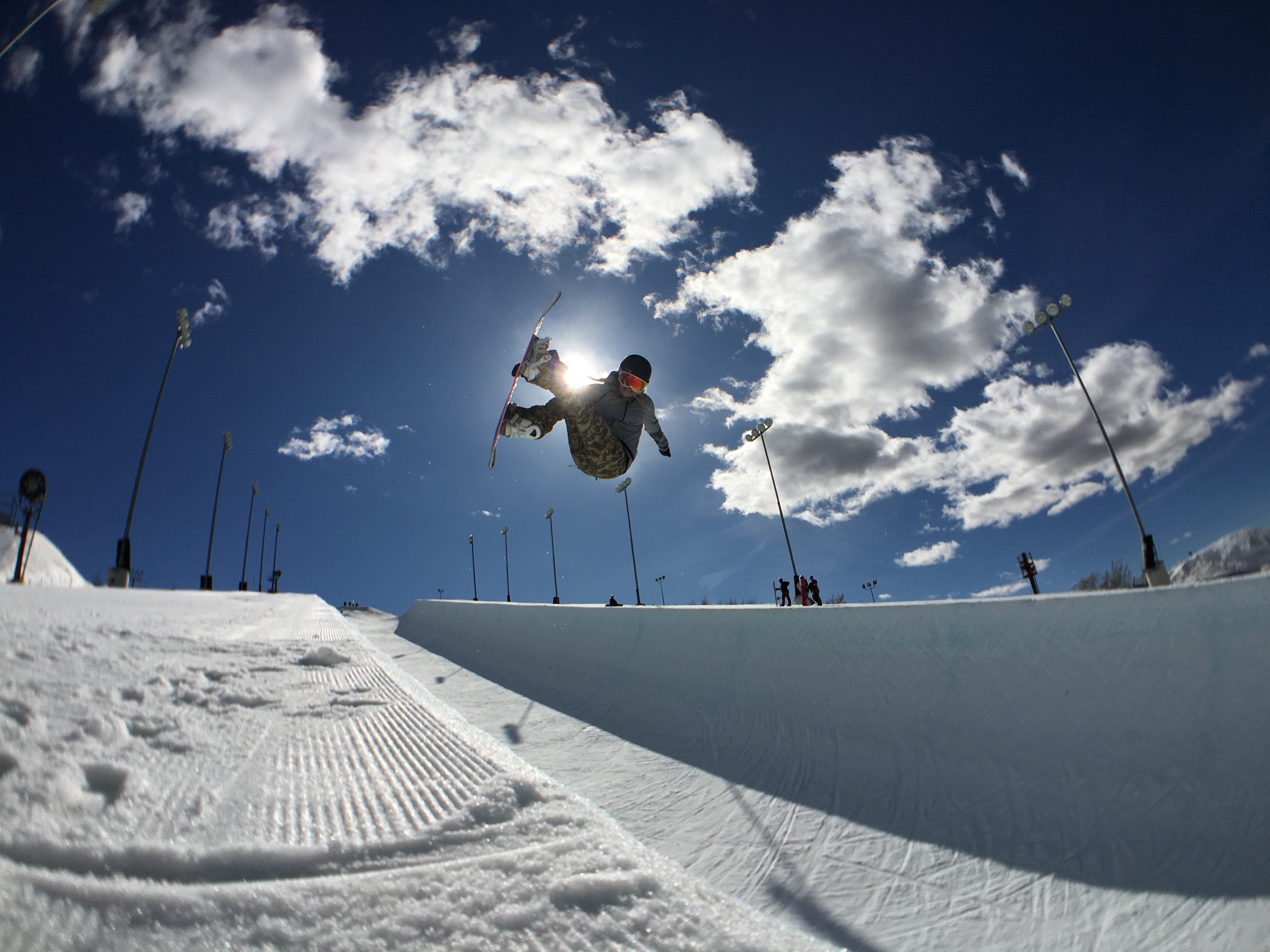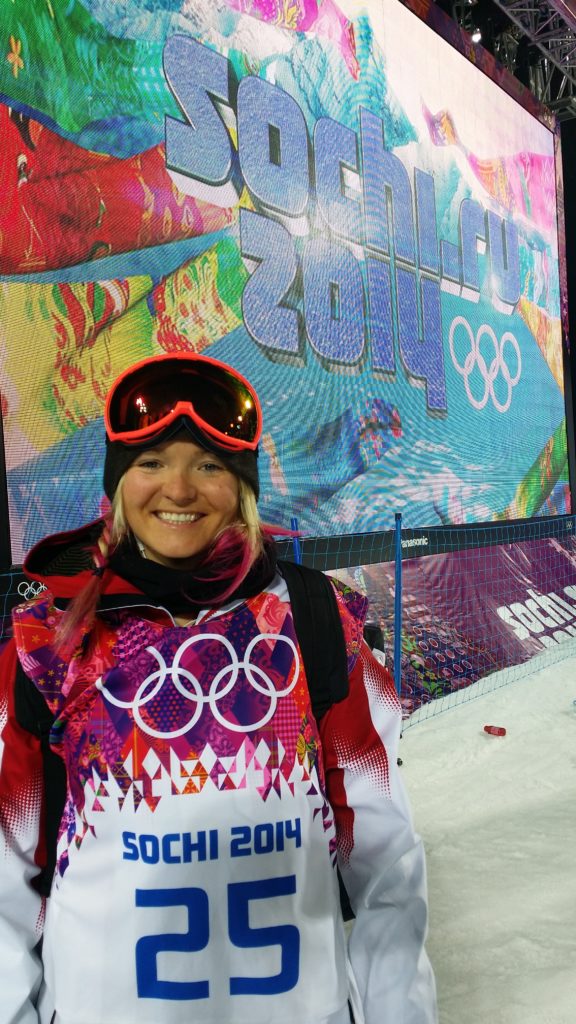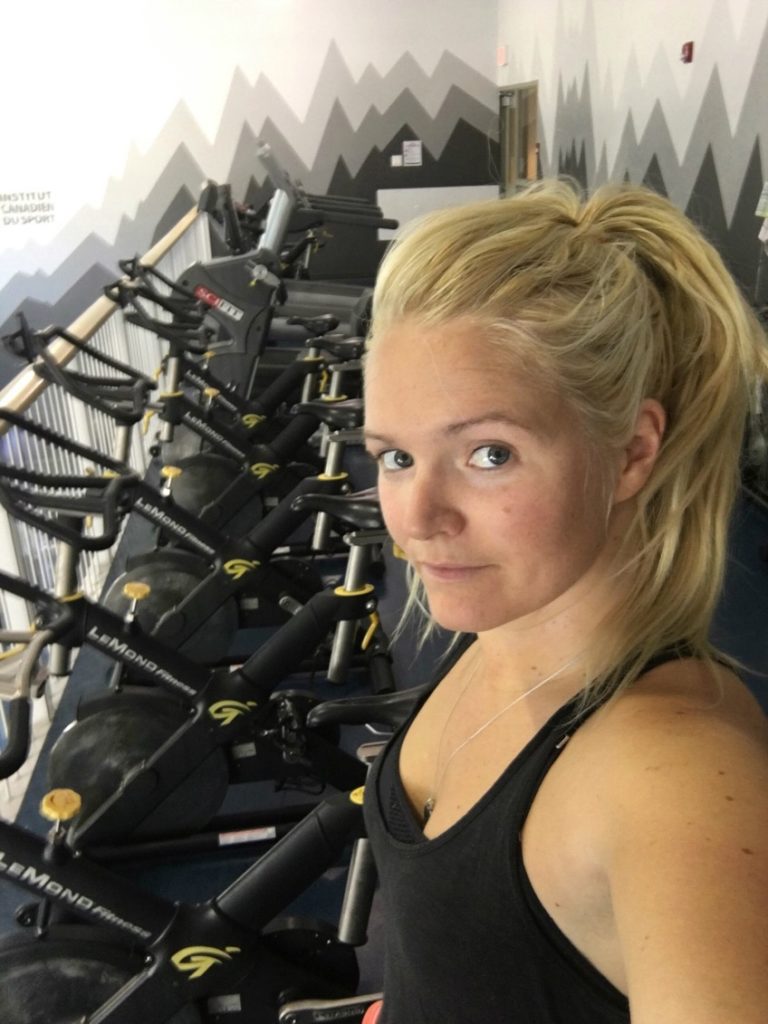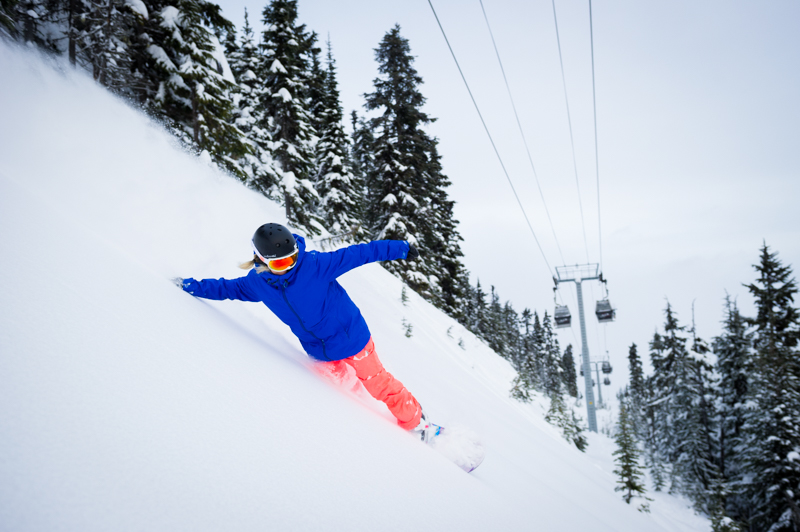According to the US Government’s Bureau of Labor Statistics, athletes and sports competitors suffer more than 2000 recorded injuries per 10000 participants. That might sound like par for the course in the sporting world, but compare that to any other job and it becomes clear that as a professional sports person, you’re engaged in one of the most dangerous careers on the planet.

Head back to my side of the pond and we can find some stats a little more tailored to today’s guest, courtesy of the British Journal of Sports Medicine: as a professional snowboarder, partaking in the halfpipe, your chances of sustaining some kind of injury are 6.3 per 1000 runs. For an athlete who competes almost continuously throughout the winter season, with practice runs and qualifiers at each event, you get an idea of how likely are the odds that, at some point in your career, you’re going to crash in such a way that it will spin life’s compass somewhat.
For Mercedes Nicoll, the most decorated rider of the Canadian women’s halfpipe team, that turning point came at 3.45pm on February 12, during the 2014 Winter Olympics, Sochi.
Statistics are fine but we don’t see them as percentages or ratios when we take up a new sport. In fact we don’t see the numbers at all. They’re present though, manifest in that wide-eyed moment where you first watch a human being perform the physically impossible: If there was no risk, no injury-related odds and probability lurking, it wouldn’t take your breath away. You wouldn’t want to watch it; you wouldn’t want to take part. You don’t see the danger stats, but they’re there, shaping your perspective nevertheless.
I doubt Mercedes Nicoll paid them much heed when, as a teenager, she first strapped into a snowboard.
“With snowboarding are so many options of things to ride, it was like I was seeing the mountain with new eyes,” Mercedes says when I ask what inspired her to focus on snowboarding among the myriad other sports she excelled at. “I was at the age, 14, where you pick one sport and run with it. All my friends were doing it, so it worked out well! A win-win some would say, a new challenge and spending time with friends. Looking back I settled on snowboarding because it was a new challenge.”
Challenge is right. At just 16 Mercedes would make her World Cup debut, and three years later, in 1999, she finished in bronze medal position at the same event. She would go on to win eight World Cup medals and compete in four FIS World Championships, as well as becoming a five time Canadian National Champion. And let’s not ignore: representing her country no less than three times at the Winter Olympics in 2006, 2010 and 2014. Life was busy, and so it remains:
“Every day is different,” Mercedes says when I ask if there’s any such thing as a typical day-in-the-life. “Some days I’m training in the gym (boring days), some days I’m at home on-hill in Whistler, some days I’m training in the pipe, some days I’m competing, some days I’m at work. I’ve always had a sensitive stomach so I have to be careful of what I fuel up with. As for a routine, I think eating healthy is key for me. Also having some serious giggles with teammates or friends: life’s too short not to laugh a lot!”
Because you never know when everything might come crashing down around you…
February 12, 2014. Approaching the half way stages of the Sochi Winter Olympic Games.
Mercedes is preparing for her practice run before that afternoon’s qualifiers, and at 3.45pm she enters the half pipe looking confident. The accident comes with brutal celerity and without the benefit of slow-motion replay, it’s difficult to observe the backside 900 which she effortlessly glides into, nor the jarring impact which reverberates through her board as it lands on the lip seven metres above the flat. The jolt quickly inverts her and she falls backwards almost all the way to the bottom of the halfpipe, twisting onto her hip as she hits the ice.

Mercedes suffered a bruised right hip bone, bruised right eye, sprained ribs and concussion. The effects would dog her for the next eighteen months. For a month she would be unable to drive because her eyes weren’t tracking. She would struggle to hold conversations and walking would be a form of acute agony. The notion of riding a snowboard again recreationally, much less at a competitive level, seemed an unlikely prospect.
“That crash taught me a lot about myself,” she says when I ask how she found a way back from it. “I went to some dark places and some great places along that recovery. I’d been snowboarding and competing full time from the age of 14 and knew nothing different. Having all that taken away from me was painful yet eye opening. I realized along my recovery that I am an athlete. During my recovery I had to look for other things to achieve, goals like my art. I had to set tiny goals to be able to walk again; as I was doing that I knew deep, deep down that I had to believe in myself and stay positive, because nothing was going to stop me from snowboarding again, I knew my athlete days were not over.”
Mercedes Nicoll, perhaps as much as anybody I’ve interviewed, is evidence that success isn’t about luck. It comes only to those who refuse to entertain the notion of quitting. Anything else is just a lottery win.
“We all fail almost every day,” Mercedes says. “It’s the ones that hold their heads up and believe in themselves that set themselves apart and succeed. I think that’s what sets people apart, when you have a goal and you’re that person that sees it through no matter what.”

For Mercedes it’s not just about introspective achievements though. It’s as important to look out as it is in. I want to know about her many contributions to society and the concept of putting something back into the pot.
“As an athlete it’s important to give back to your community. I share my time at my local elementary school, with the Whistler Blackcomb Foundation, KidSport, and Canada’s The Great Trail. The Whistler Blackcomb Foundation has raised over $10.5 million for non-for profit community organizations along the sea to sky corridor (Vancouver to Whistler) benefitting areas of health, human services, education, recreation, arts and culture and the environment, emphasizing on children, youth and family programs. I donate my time as an ambassador at their events such as the Winter Classic that’s right around the corner, January 20th – 21st 2017. The Whistler Blackcomb Foundation is a supporter of another organization I am an ambassador for, KidSport, providing financial assistance for registration fees and equipment to kids 18 and under.”
Like all achievers, Mercedes is tireless. Or perhaps enthusiastic is a better fit in her lexicon, because positivity is as important to her as commitment.
“If you have the passion and competitive spirit to pursue competitive snowboarding, go out and do it. If you don’t try, you’ll never know what you can achieve, but when it comes to snowboarding don’t leave your smile behind!”
And the ebullient Canadian is going to need every ounce of those happy reserves in the coming year because as a competitor, she’s far from done.
“Last January I wasn’t sure what was going to happen when I got back in the halfpipe,” she replies when I ask if we might see her competing at an incredible fourth Olympic Games. “Really, it was 50/50; I was going to be able to compete again or I was done. Luckily muscle memory is amazing and I’m currently on the road to the 2018 Games, competing again.”

My thanks to Mercedes for her time and for sharing her road to recovery with me. If you’d like to get to know the most medal- and trophy- bedecked athlete in the Canadian women’s snowboard team, her website is mercedesnicholl.com.
You’ll also find Mercedes on social media at:
Twitter: @mercedesnicholl
Facebook: /MercedesNicollProSnowboarder
Instagram: /MercedesNicoll
But if that’s not close enough for you, why not take some lessons from the lady herself? If you want to get to know her home territory and the pistes of Whistler Blackcomb like nobody else, hone your skills on the snow with Mercedes.
